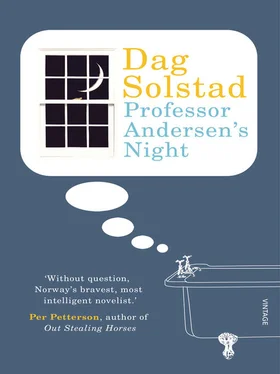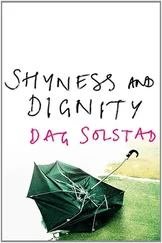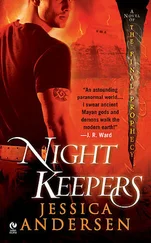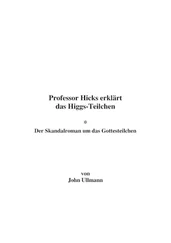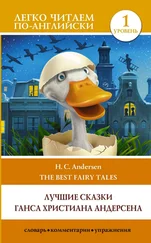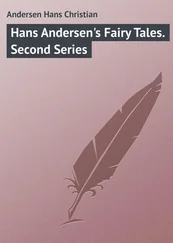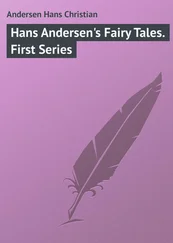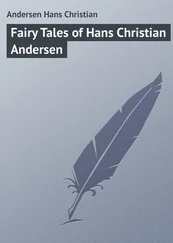Dag Solstad - Professor Andersen's Night
Здесь есть возможность читать онлайн «Dag Solstad - Professor Andersen's Night» весь текст электронной книги совершенно бесплатно (целиком полную версию без сокращений). В некоторых случаях можно слушать аудио, скачать через торрент в формате fb2 и присутствует краткое содержание. Год выпуска: 2011, Издательство: Harvill Secker, Жанр: Современная проза, на английском языке. Описание произведения, (предисловие) а так же отзывы посетителей доступны на портале библиотеки ЛибКат.
- Название:Professor Andersen's Night
- Автор:
- Издательство:Harvill Secker
- Жанр:
- Год:2011
- ISBN:нет данных
- Рейтинг книги:3 / 5. Голосов: 1
-
Избранное:Добавить в избранное
- Отзывы:
-
Ваша оценка:
- 60
- 1
- 2
- 3
- 4
- 5
Professor Andersen's Night: краткое содержание, описание и аннотация
Предлагаем к чтению аннотацию, описание, краткое содержание или предисловие (зависит от того, что написал сам автор книги «Professor Andersen's Night»). Если вы не нашли необходимую информацию о книге — напишите в комментариях, мы постараемся отыскать её.
Professor Andersen fails to report the crime. The days pass, and he becomes paralysed by indecision. Desperate for respite, the professor sets off to a local sushi bar, only to find himself face to face with the murderer.
Professor Andersen's Night
Professor Andersen's Night — читать онлайн бесплатно полную книгу (весь текст) целиком
Ниже представлен текст книги, разбитый по страницам. Система сохранения места последней прочитанной страницы, позволяет с удобством читать онлайн бесплатно книгу «Professor Andersen's Night», без необходимости каждый раз заново искать на чём Вы остановились. Поставьте закладку, и сможете в любой момент перейти на страницу, на которой закончили чтение.
Интервал:
Закладка:
It went quiet for a while. The two men drank whisky in Professor Andersen’s room at the Britannia Hotel. To tell the truth, they drank a lot; the bottle was close to being half empty. It was no later than 3 p.m. Outside the window it had already begun to get dark. Professor Andersen’s colleague was a few years younger than him, approaching fifty, though he hadn’t reached it yet. He had just started a new life, in so far as he had got married a second time, to a young woman, one of his students no less. This Professor Andersen knew, but he hadn’t touched on it as yet, and his colleague hadn’t had an opportunity to do so himself, as Professor Andersen had started talking straight away about what was on his mind, and which, after all, was the reason why he had phoned his colleague from Fornebu when it suddenly occurred to him to go up to Trondheim. He poured yet another whisky for himself and handed the bottle to the other man, while he was thinking that he must try to continue with his deliberations before he became so intoxicated that he couldn’t continue, but would just repeat himself, over and over again, using exactly the same words, as he knew he had a habit of doing under the influence of alcohol.
‘Recently I’ve begun to look at myself in a different light than I did before,’ continued Professor Andersen. ‘Previously I regarded myself as a person who was able to use my resources to the full, and was, to be perfectly honest, proud of that ability. Now I see clearly how limited my horizon is, and it surprises me that I haven’t seen it before. Imagine how I’ve gone round calling myself enlightened and aware, even claiming to have an understanding of history, and actually I haven’t any knowledge of my ancestors even three generations back, and worse still: I’ve not even been concerned about this. It is utterly disgraceful,’ he shouted, and thumped his fist on the table-top, so that the blue Farris (the second one) overturned, and the whisky splashed over his glass. ‘This is the state of the human spirit in our time,’ he continued, after drying the table-top with his handkerchief. ‘Of which we are both outstanding and excellent representatives. There is something primitive about it which we haven’t been able to face up to. I’m scared,’ he said, ‘and frightened by my own ignorance. I’ve reached the age of fifty-five, and am not eager to throw myself into a new field of study.’ He went silent. ‘But if that is the case,’ his colleague said eagerly, ‘then what you say is surely an unusually weighty defence as to the necessity of art and literature.’ ‘Oh, don’t be so sure about that,’ said Professor Andersen with a fierce smile, which he reckoned he would have characterised as evil if he had seen himself from outside.
He felt quite inebriated, so he decided not to continue this conversation. He asked his colleague how he was, and the latter immediately began to talk about his affairs. The contents of the whisky bottle became dangerously low, and Professor Andersen was obliged to call room service and order two more bottles of blue Farris, as well as a bucket of ice. It can’t be denied that Professor Andersen listened with only half an ear (of altogether two whole ones) to what his colleague told him about his affairs. For his part, his colleague was still clearly preoccupied with what had brought Professor Andersen to Trondheim over the Christmas period, and when he heard that there wasn’t any particular reason for it, and that he didn’t have any particular plans for the next few days either, he immediately invited Professor Andersen to stay with him, an offer Professor Andersen emphatically declined. He preferred, in fact, to stay at a hotel when he was out travelling. ‘Yes, if you can afford it,’ said his colleague, possibly slightly offended. ‘I treat myself,’ answered Professor Andersen, and he noticed that he was proud of being able to say that he treated himself to staying in a hotel when he was out travelling. His colleague got up and made a phone call. Professor Andersen understood that he was phoning home to his young wife, for he heard him say that he was bringing a guest home for dinner. He also heard sounds which could be interpreted as protests on the other end of the line, and his colleague said: ‘It’ll be fine,’ before he put down the receiver and, beaming, invited Professor Andersen to dinner. A little later the whisky bottle was empty, and the two gentlemen left the Britannia Hotel in an excessively good mood.
Outside on the street his colleague pointed at a car parked by the kerb, and said, ‘That’s my car. I had no idea I’d be drinking in the afternoon.’ They walked along the street. Professor Andersen asked where they were headed. ‘Home to my place,’ said his colleague. ‘We have to get a bus as it’s too far to walk.’ ‘Can’t we take a taxi, then?’ asked Professor Andersen. ‘Taxi?’ said his colleague. ‘Yes indeed, we can take a taxi. I hadn’t thought of that.’ So they hailed a taxi, and a little later they came to a stop outside a house on a hillside above the centre of Trondheim.
Professor Andersen paid for the taxi and they got out and went into the house. There his colleague’s young wife was standing, holding a small child in her arms. She breast-fed it, unselfconsciously and openly. She said that they only had fishcakes for dinner. Professor Andersen said that he looked forward to eating fishcakes, especially in Trondheim, where they really could make fishcakes. The young wife and mother replied that they were ready-made fishcakes, the kind you could buy in every supermarket in the country, but Professor Andersen said he looked forward to them, nonetheless. He asked what the child was called, and told them an anecdote from the University of Oslo, which his colleague, as well as his young wife, thought highly amusing. ‘Well, as you can see, I’ve begun on a second brood,’ said his colleague to Professor Andersen when his young wife was out in the kitchen preparing the fishcakes. ‘She’s still studying,’ he added. The dinner was splendid. Indeed, Professor Andersen enjoyed sitting like that in the kitchen in a private home eating ready-made fishcakes with boiled potatoes and grated carrots. With a brown sauce. And fried onions. The only thing he was slightly dissatisfied with was that there was only half a bottle of beer to share between them with the meal; that was rather little for him, with the alcohol still going to his head. But after the meal they had coffee, and then his colleague got out a bottle. ‘This isn’t exactly whisky or French cognac,’ he said, ‘but something much better. A drink popular in Trøndelag: karsk.’ He poured this into the coffee. They stirred it and drank. ‘Skol for your child,’ said Professor Andersen, and both his colleague and his young wife nodded in a friendly way, and smiled happily and skolled in return and thanked him; the young mother didn’t have karsk in her coffee, it’s true, but she skolled and thanked him, nonetheless. His colleague said it was terribly nice that Professor Andersen had chosen to spend the Christmas week and New Year’s Eve in Trondheim, and his young wife agreed. They immediately invited Professor Andersen to a New Year’s Eve party. Not in their own home, but with some friends of theirs, and when Professor Andersen protested and said that it might well be inconvenient, his colleague got up and phoned the friends they were going to visit, and said that he would like to bring along another guest, Professor Andersen from the University of Oslo, and when he put down the phone, he said that they would be pleased if Pål Andersen came along. Tomorrow he wanted to go skiing with Andersen. But Professor Andersen didn’t have any skiing equipment with him. ‘We’ll fix that,’ said his colleague and went down into the cellar and brought up a pair of old skis. Professor Andersen had to try skis and ski-poles, boots and bindings, and his colleague didn’t give up until everything fitted. He borrowed an anorak and knickerbockers as well, his colleague’s discarded ones; not exactly the latest fashion, but he hadn’t come to Trondheim to look stunning on the ski slope, had he, ha ha. His colleague’s young wife sat down with her sewing things and measured up and sewed in the anorak and the knickerbockers, so they wouldn’t hang off him, flapping around, as his colleague was a good deal stouter than Professor Andersen. In high spirits, even though it was quite early, Professor Andersen said goodbye to his colleague and his wife. Back at the hotel he ransacked the mini-bar looking for a drink, before he recollected that in Nordic hotels there aren’t any drinks in the mini-bar, just wine and beer. He called room service for a double whisky and soda. He had to have something to send him to sleep, and also to get rid of the reek of karsk which still lingered, even though he had drunk as little of it as possible.
Читать дальшеИнтервал:
Закладка:
Похожие книги на «Professor Andersen's Night»
Представляем Вашему вниманию похожие книги на «Professor Andersen's Night» списком для выбора. Мы отобрали схожую по названию и смыслу литературу в надежде предоставить читателям больше вариантов отыскать новые, интересные, ещё непрочитанные произведения.
Обсуждение, отзывы о книге «Professor Andersen's Night» и просто собственные мнения читателей. Оставьте ваши комментарии, напишите, что Вы думаете о произведении, его смысле или главных героях. Укажите что конкретно понравилось, а что нет, и почему Вы так считаете.
